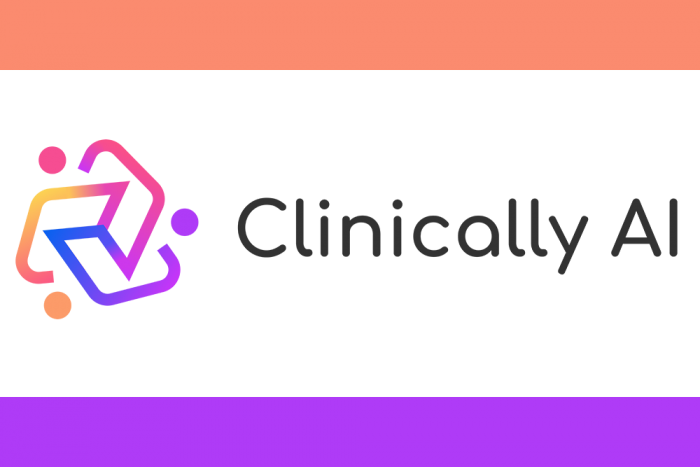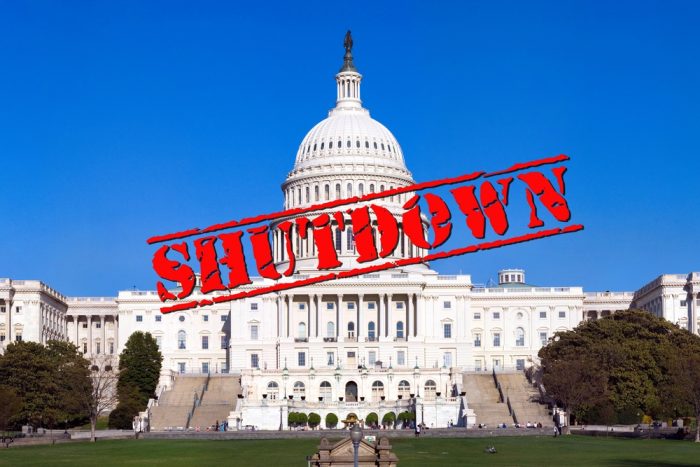Last Call to Register: Measurement-Based Care with RCPA and Greenspace Health
Workforce Development in the Behavioral Health Strata: Live Webinar Oct 23
Drexel University/BHE Special Presentation
INVITED SPEAKER SERIES
LIVE WEBINAR
WOL849 – Workforce Development in the Behavioral Health Strata:
We see and hear you.
Thursday, October 23, 2025, 9:00 am – 11:00 am
Presenter: Veronica Carey, PhD, CPRP, CDE
Description:
This training offers an opportunity to view participants as individuals, as well as the collective, in pursuit of serving people in the behavioral health system. The training focuses upon endurance, professional pain points, and experiences that may make a workday difficult. All participants will achieve professional identification while learning to navigate workplace issues.
Objectives:
- State the top 10 pain points in the behavioral health workforce.
- Develop a “first five words” approach to mitigating workplace issues.
- Describe (and celebrate!) the strengths inherent in the behavioral health role.
CE Credits: APA-2; CPRP-2; LSW/LCSW/LPC/LMFT-2; NBCC-2; PA Act48-2; PCB-2; IACET-.2
About the Presenter
Veronica Carey, PhD, CPRP, CDE, has been an academic for 22 years and currently serves as the Assistant Dean for Diversity, Equity, and Inclusion, as well as the Chair of the Board of Diversity, Equity, and Inclusion at Drexel University’s College of Nursing and Health Professions. She holds the position of associate clinical professor in the Human Development and Counseling Department and is a certified diversity executive. Dr. Carey is also the chair of the Academy for Psychiatric Rehabilitation Association, a certified psychiatric rehabilitation specialist, and the vice president of Caravan of Life, a behavioral health NGO in Pakistan. She is the author of the critically acclaimed book “Frame Your Degree: How to Avoid Pain While Seeking a College Degree.” Dr. Carey conducts seminars on student academic culture, health disparities, and organizational infrastructure for racism minimization, addressing faculty, professional staff, students, and other professionals both nationally and internationally, including in Abu Dhabi, Cairo, Cameroon, Ghana, Milan, Karachi, and Singapore. Dr. Carey also delivered a TEDx Talk in 2023, “Pain, Pain Go Away,” which highlights the endurance challenges students face while pursuing a college degree. Her contributions to education, diversity, and psychiatric rehabilitation make her a significant figure in her field. On a personal note, she enjoys interior design and co-owns a real estate LLC with her sister, specializing in house flipping.
Training Fee: $25
Register Today
RCPA Announces Strategic Partnership with Clinically AI to Advance Ethical AI in BH and IDD Services
The Rehabilitation and Community Providers Association (RCPA) is proud to announce a new strategic partnership with Clinically AI, a leading innovator in AI-powered clinical documentation, compliance, and governance solutions for behavioral health and intellectual/developmental disability (IDD) providers.
Clinically AI is a mission-driven technology company dedicated to transforming clinical documentation and compliance for behavioral health and IDD providers. Its ChartAware™ platform combines ambient listening, real-time compliance auditing, and organizational AI to help providers reduce administrative burden, strengthen compliance, and improve care delivery.
Through this partnership, RCPA and Clinically AI will work together to:
- Educate members on emerging AI trends, compliance requirements, and workforce impacts through quarterly educational webinars and thought leadership resources.
- Support safe and ethical adoption of AI in Pennsylvania’s behavioral health and IDD systems via the launch of the RCPA AI Consortium, a structured, member-driven learning community designed to help organizations move from education to responsible implementation.
- Deliver economic benefits to members, including access to exclusive member discounts on Clinically AI’s solutions by using the discount code ClinicallyAIPartner.
“RCPA is committed to helping our members navigate the rapidly changing landscape of technology in a way that prioritizes compliance, quality, and ethical governance,” said RCPA President & CEO Richard Edley. “Our partnership with Clinically AI ensures that members receive both the education and tangible benefits they need to make informed decisions about AI adoption.”
Clinically AI’s CEO, Ross Young, added:
“We are honored to partner with RCPA to advance mission-driven adoption of AI. Together, we’re equipping providers with the knowledge, tools, and guardrails to ensure that clinical judgment remains at the center while technology helps reduce risk and strengthen quality.”
The partnership officially launches this fall, with the first joint webinar scheduled for October 2025. Details and registration information will be shared with RCPA members in the coming weeks.
Ready to see how Clinically AI can make documentation easier for your team? Contact us today to learn more.
ANCOR and RCPA Provide Details on How Federal Government Shutdown Would Affect Human Services Providers
Last week, the US House of Representatives passed a continuing resolution (CR) to keep the government funded through November 21, 2025. However, the CR legislation was not passed in the US Senate, failing with a vote of 44–48. The House and Senate have now adjourned for recess this week without finding a path forward to keep the government funded past September 30, 2025.
Although there are ongoing discussions among Republican and Democratic leaders, the Senate is not currently slated to return to Washington until September 29, and the House may not return until October. If an agreement on funding legislation is not reached by September 30, there will be a government shutdown.
To help prepare for what a government shutdown could mean, we are providing a helpful resource from McDermott+.
Below are key takeaways from how a shutdown could impact human services providers:
- Depending on the length of a shutdown, Medicaid will continue to have sufficient funding and state payments so that providers should not be interrupted. A shutdown that extends beyond the quarter could potentially result in delayed payments to states, although that is unlikely.
- It is likely that a percentage of HHS staff, including CMS, will be furloughed for the length of the shutdown, although the current administration has yet to release new guidance regarding agency procedures. With limited staff, CMS is unlikely to approve state plan amendments and waivers during a government shutdown, although review may occur in the background.
- During a shutdown, the Administration for Community Living has historically continued activities funded through carryover funding.
- SAMHSA has historically continued substance abuse and mental health programs during previous shutdowns, including those that provide critical behavioral health resources in the event of a natural or human-caused disaster, such as disaster behavioral health response teams, the disaster distress helpline that provides crisis counseling to people experiencing emotional distress after a disaster, and the 988 lifeline to connect people in crisis with life-saving resources.
- The current Medicare telehealth flexibilities are extended via statute. However, the statutory provision expires on September 30, and needs to be extended by legislation (not regulation); these flexibilities would end if a government shutdown occurs. Pre-pandemic limitations for Medicare telehealth coverage and payment would return. These include waivers to geographic and originating site restrictions, expansions to the list of eligible practitioners, authorization of telehealth via audio-only telecommunications, use of telehealth for required face-to-face encounters prior to hospice care recertification, and the delayed in-person visit requirement for tele-mental health service.
- A shutdown could impact the regulatory process. For example, if there were pending rulemaking, the Centers for Medicare and Medicaid Services (CMS) staff who work on these rules, along with the Office of Management and Budget (OMB) staff who review the regulations before they are released, could be furloughed in the event of a shutdown.
- In the event of a government shutdown, Medicare and Medicaid payments to states do not immediately stop if the federal government shuts down. Both Medicaid and Medicare are mandatory spending programs, which means their funding is authorized permanently, and is not subject to the annual appropriations process that lapses.
These are all assumptions based on prior history, but shutdown operations under the new Trump administration could look quite different from how they have previously operated.
For additional information on other health care programs, please see this document.
Reminder to Show Your Support for the RCPA Letter Urging an End to the Budget Impasse
RCPA Drafts Letter to Urge Ending the Budget Impasse, Seeks Support From Members
PA to Receive $83 Million in State Opioid Response Funding
Pennsylvania will receive more than $83 million from the Substance Abuse and Mental Health Services Administration (SAMHSA) in State Opioid Response (SOR) grant funding, which provides critical resources to states and Tribal communities to address the overdose crisis through prevention, opioid overdose reversal medications, treatment (including medications for opioid use disorder [MOUD]) and recovery support. On Monday, the U.S. Department of Health and Human Services (HHS), through SAMHSA, announced a total allocation of more than $1.5 billion in Fiscal Year 2025 continuation funding for SOR and Tribal Opioid Response (TOR) grants, with $1.48 billion committed to SOR and nearly $63 million committed to TOR.
This most recent round of funding is the second year of the three-year SOR IV grant cycle, which began October 1, 2024, and runs through September 30, 2027. The Pennsylvania Department of Drug and Alcohol Programs (DDAP) manages and distributes SOR funding, which comprises a significant percentage of DDAP’s annual budget.
Since the SOR program began in 2018, states report that nearly 1.3 million people have received treatment services, including more than 650,000 who received MOUD. Through the SOR program, nearly 1.5 million people have received recovery support services. SAMHSA grantees reported distributing more than 10 million opioid overdose reversal kits, with opioid overdose reversal medications being used to reverse more than 550,000 overdoses. Since the TOR program began in 2018, Tribes report that approximately 16,500 patients have received treatment services, and SAMHSA grantees reported distributing more than 116,500 naloxone kits, with opioid reversal medications being used to reverse more than 1,750 overdoses.
AATOD to Host Free Webinar in Ongoing Effort to Support OTPs In Complying With Updated Regulations
The American Association for the Treatment of Opioid Dependence (AATOD) is hosting a free webinar from 12:30 pm – 2:00 pm Wednesday, September 24, on states’ and treatment providers’ response to the Substance Abuse and Mental Health Administration’s updated regulations governing opioid treatment programs (OTP). The updated regulations, in place since October 2024, are intended to increase accessibility to and flexibility within OTPs, including methadone treatment for opioid use disorder.
Registration for the webinar is required.
The webinar builds on the July 2025 presentation that provided guidance to OTPs on the updated regulations. Presenters will share how states and treatment providers are complying with the regulations and how patients have benefited through increased access, retention, and treatment flexibility.
The discussion will serve as a prelude to AATOD’s policy discussions at the upcoming national conference in Philadelphia, October 4 – 8, 2025.
The webinar will also be available on-demand via the AATOD website. Certificates of Attendance will be provided upon request. For questions, email AATOD.
Public Comment Sought On SUPTRS Block Grant Application
The Pennsylvania Department of Drug and Alcohol Programs (DDAP) is providing the opportunity for public comment on the Pennsylvania Substance Use Prevention, Treatment, and Recovery Services (SUPTRS) Block Grant application. This application will occur in three parts:
- Substance Abuse Prevention and Treatment Assessment and Plan
- SUPTRS Report (available in November)
- Annual Synar Report (available in December)
The application documents can be accessed through SAMHSA’s Web Block Grant Application System (WebBGAS) using the login “citizenpa” and password “citizen.”
Please submit your comments by Tuesday, September 30.

















